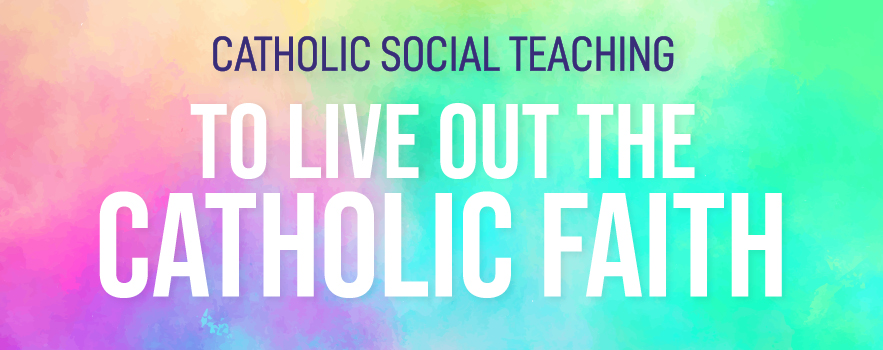No products in the cart.

What does it mean to be a Catholic in Singapore? Often, we tend to see our faith as separate from our activities as citizens and residents of our nation. Yet, in this time of great change and challenge, perhaps it is more important than ever that we reflect on this question.
Perhaps one answer to this question is to be committed to unity in a democratic society. By definition, a democratic society is one where its leaders, and therefore its policies, are chosen by its citizens. This is enriched when we see it from the perspective of the Catholic Social Teaching (CST). For example, the CST principle of participation tells us that each of us has a right and a responsibility to have a say in what determines our future and society.
As the pandemic continues and infections come from unexpected places, a commitment to societal unity by every person is critical. In practice, that means continuing to be vigilant, and more importantly, by not blaming each other when things are not going well; we must be watchful, not only of what we say in person, but also in the digital space, so that we do not end up creating more divisions. “Blessed are the peacemakers, for they will be called children of God,” says Jesus in the Gospel of Matthew (Mt 5:9).
Citizens and residents of many nations often dream of justice, happiness and continual progress for their country. The Church has a similar dream, and this is reflected in the CST principle of the common good which invites us to strive for a society where every person is able to arrive at their fulfilment as human persons. To be a Catholic in Singapore then, perhaps, is to have this dream and continuously work for it.
Building such a society requires the responsible participation of every person and their commitment to take seriously the commandment to love our neighbour (Matthew 22:39). Just as we spend time praying daily to deepen our relationship with our Lord, so must we ask ourselves these questions daily. Who are our neighbours? What do they need? What can we do?
It is only when we can see the people around us with the eyes of Christ, and sensitise ourselves to their struggles that we can begin to see them as fellow children of God and love them as Christ did. This perspective of love is what will inform our discourse in our communities of how we can move forward and together, whatever that comes on the road ahead.
Once we get these conversations going in our communities, then we can begin to follow up on our words with deeds, working together on initiatives for the common good that contribute towards realising the vision that we have dreamed of together as one united community.
It will be difficult in these uncertain times when even the National Day Parade has to be delayed. But it is necessary and it is our call. Our Lord’s words can become our clarion call. “Blessed are those who hunger and thirst for righteousness, for they will be filled. Blessed are the merciful, for they will receive mercy” (Matthew 5:6-7).
First published in Catholic News. Reprinted with permission.
